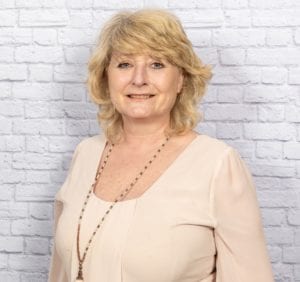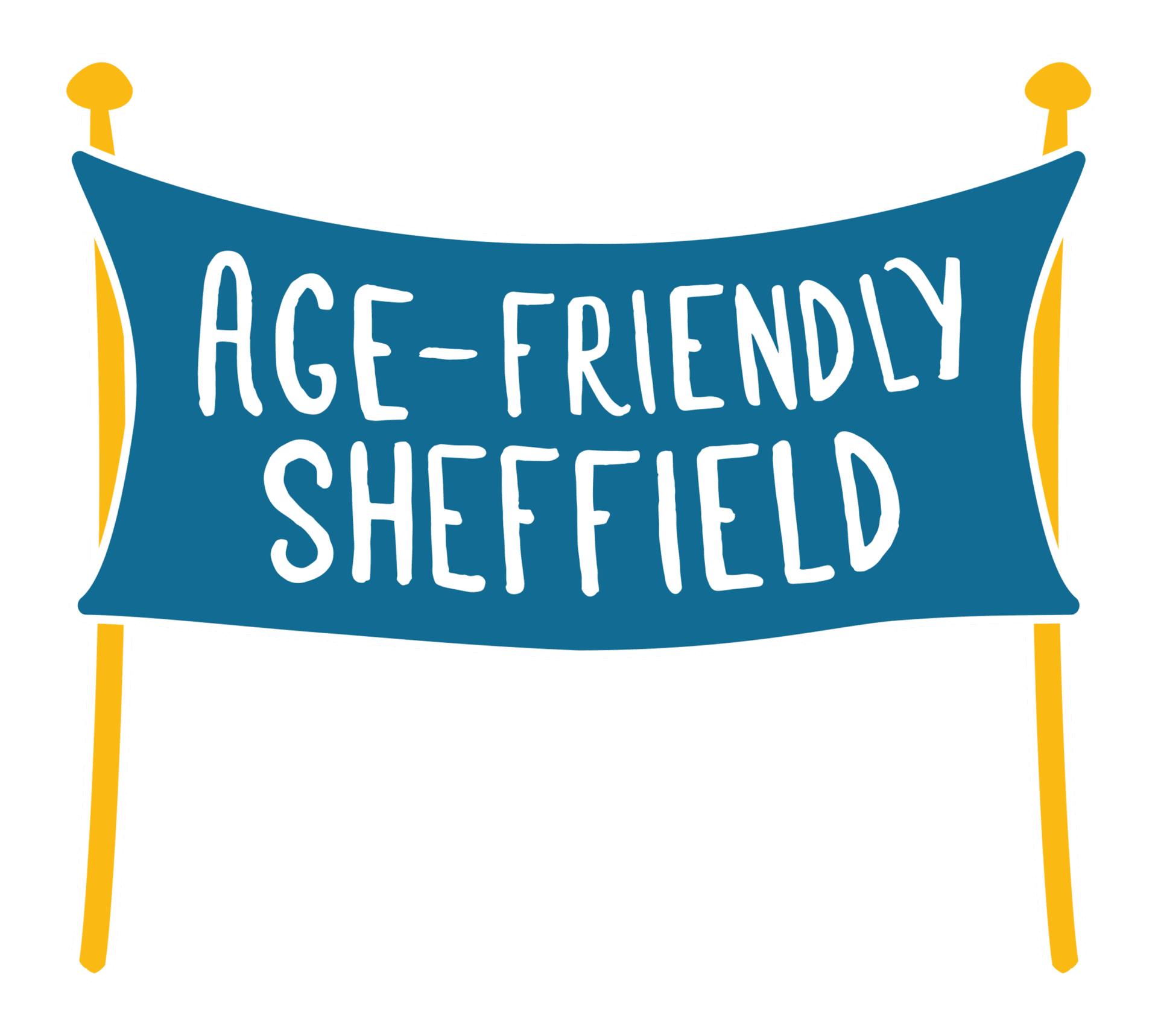Social Prescribing in a Crisis
Sue, from one of our partner programmes, Brightlife Cheshire, tells us how she has had to adapt her role since lockdown and gives us some top tips for continuing to offer valuable support in a time of crisis
As part of co-production week, we have been sharing some of our insights and learning from the Ageing Better programmes. SCIE’s theme this year is “Co-production in a Changing World”, which is inspired by the COVID-19 pandemic. Our co-producing in a crisis blog series was also motivated by the current crisis and followed the different stories of how our Ageing Better partners have been adapting to the situation.
 This next blog which is such a heart-warming read, comes from Sue Downham, Social Prescribing Co-ordinator for Brightlife-Cheshire. Sue shares her own experiences of supporting older people, adapting to the current climate and reflecting on what it means to be a Social Prescriber.
This next blog which is such a heart-warming read, comes from Sue Downham, Social Prescribing Co-ordinator for Brightlife-Cheshire. Sue shares her own experiences of supporting older people, adapting to the current climate and reflecting on what it means to be a Social Prescriber.
When sharing co-production learning it’s so important to include the stories of how our co-created services are impacting the people on the ground, and we think that Sue’s blog does just that in a very moving and yet humorous way. Oh, and she throws in a few top tips too!
Over to Sue…
 I am a Social Prescribing Co-ordinator and if you are not familiar with what I do, I support people 50+ to become less lonely (ironic in these times), to rekindle old pastimes, to make new friends and maybe just to re-discover themselves. Simple? Well, not as much as you may think. Life can be complicated, and physical & mental health can take its toll on our ability to do the things that we used to. There can be financial constraints also; and we may come across safeguarding issues too. It is a wonderful challenge having to find creative ways to support people to become happier within their individual circumstances. Add Covid-19 into the mix….well then the big question is, how can my colleagues and I really make a difference during these constricted times?
I am a Social Prescribing Co-ordinator and if you are not familiar with what I do, I support people 50+ to become less lonely (ironic in these times), to rekindle old pastimes, to make new friends and maybe just to re-discover themselves. Simple? Well, not as much as you may think. Life can be complicated, and physical & mental health can take its toll on our ability to do the things that we used to. There can be financial constraints also; and we may come across safeguarding issues too. It is a wonderful challenge having to find creative ways to support people to become happier within their individual circumstances. Add Covid-19 into the mix….well then the big question is, how can my colleagues and I really make a difference during these constricted times?
Top tip: Communicate with colleagues, pull  resources, and forge a plan
resources, and forge a plan
Adapting
I enjoy visiting people in their homes but obviously this was not possible at the beginning of Covid-19. Initially it was phone calls all the way. My colleagues and I were keeping in touch through phone calls, text and virtual media. Before lockdown, I was just in the throws of saying goodbye to working in one location and starting to build relationships in another. Luckily I had made waves in establishing myself at the new locality before 31st March so have new clients, all of whom I have contacted, but I also felt an obligation to support my former clients too; a few I had not officially completed supporting, and others I knew did not have family close by and were shielding. However, this has been a dilemma as it is impossible to keep in touch with such a large former caseload, and although I know people in my old area well, I still question my judgement when deciding who I was to contact and who I wasn’t.
Top tip: Trust yourself to make decisions and  prioritise
prioritise
Changing feelings
People were happy for me to call them and at first it was fairly light-hearted, and most were philosophical. I asked about their welfare and if their needs were being catered for; signing them up for food deliveries, working with various voluntary organisations, sending out information through the post and doing the odd food and prescription run myself, working alongside Age UK Cheshire. But once the practicalities had been discussed due to people having a narrow focus, deep feelings began to unravel. As time has gone on people have opened up, as their time spent alone has enticed more reflection, and I have felt palpable anxiety in a few of my clients. It has been great to use the phone as communication but also to see individuals face to face. Our partners DSN (Deafness Support Network) and colleagues at Brightlife have put together Activity Packs for clients, some have been posted and some I have recently been able to hand deliver (obviously observing socially distancing rules).
Top tip: ‘Me time’ is important, as conversations are heavy and can be emotionally draining
heavy and can be emotionally draining
Our amazing participants
I would like to share with you briefly just some of the diverse ways people have expressed themselves to me during this turbulent time;
Reminiscing
Mr F aged 99 remembered when he worked at Daresbury Hall at the age of 14 as a Gardeners Hand for Baron & Baroness Daresbury. The garden was laden with various fruits and he was told under no circumstances was he ever to help himself to the peaches of the tree, it was a sackable offence! Well rules were made for breaking and today he can’t bear to look a peach in the eye.
What I learnt From Mr F was that the Hall still stands today, unoccupied albeit in a state of ruin but it recently had a new purpose as a Cannabis Farm; I asked if it had reopened for visits and could I have the address!
Grieving
Sadly two ladies Mrs J 89 and Mrs P 76 who I have recently visited have both lost their husbands within the last year. It is still very raw for them, highlighted I am sure by hours spent with only their memories to indulge themselves with. I found it hard not hold their hands or give them a hug when they became emotional, as they so obviously needed it. But we talked about their spouses; the good times together and the laughter that they shared, what they did together and how they met. Coincidentally, they both met their husbands at a dance hall. Mrs P and I cogitated over what happened to those wonderful days of romance, and concluded Tinder was no replacement.
Revealing
Rape and abortion were a subject of one of my meetings. A long way in the past for this lady who is in her 70’s but something she felt she wanted to share with me. I’ll leave it there as I am still in shock.
Ruminating
Ms B who is 64 is so unhappy in her flat, she feels that she is being spied on. She also lives with enduring mental health issues and has missed coming to the social gatherings that I had previously organised, (the only time she socialises). She has clearly regressed as she brings up her past which has been peppered with such unhappiness. She had a lot of pent up anger and our meeting lifted the lid on the pressure cooker that had been bubbling unstirred. We discussed getting together in a group when cafes start to open. Like most people, I respect this lady immensely and she thanked me for having that respect, which I am completely humbled by.
Creating
It’s amazing what you can do with a pair of M&S knickers, (other sources of lingerie are available too). I had a step by step masterclass in mask making using the aforementioned, which were “cut at the crutch”, and the elastic lace edging used for the earpieces – genius! I was so disappointed when I met up with the lady creator who was not modelling said item. She had forgotten, but apparently she is the envy of her apartment block. We laughed and discussed amongst other subjects American politics including Trump, (I can with this lady), American TV versus British, veganism and where to get the best fish & chips. This wonderful person was once homeless, she has not been out of her flat for 3 months!
Learning
Mrs C’s daughter should have been married in June 2020. She is worried about putting on weight and not being able to fit into her outfit, but she has found a new way of keeping herself busy to avoid cake. Before lockdown she was averse to anything IT and was not prepared to learn, as she stated she was “too old”, which of course, was politely objected by me. After a little encouragement from her reading group and some support from family, and a little from me, she is now a Zoom queen and loving it. She meets every week with two of her groups that she normally attends. She has maintained that connection and has learnt a new skill, and I can see in her eyes how pleased she is with herself – go Mrs C!
My own Reflection
Image and perception can often veil truth, but as a Social Prescriber we get to see a person’s reality and although it can be very challenging and sad at times, it is also a tremendous privilege. I think lockdown has increased the awareness of loneliness but has mostly brought out the best in people in terms of supporting those in the community who need the most basic of needs, and that’s human contact and kindness.
Written by Sue Downham, Social Prescribing Co-ordinator, Brightlife Cheshire


